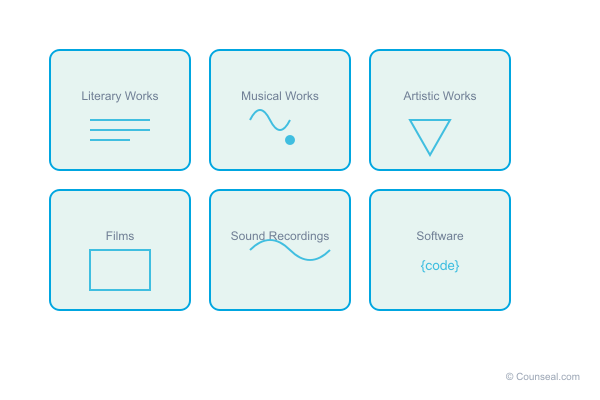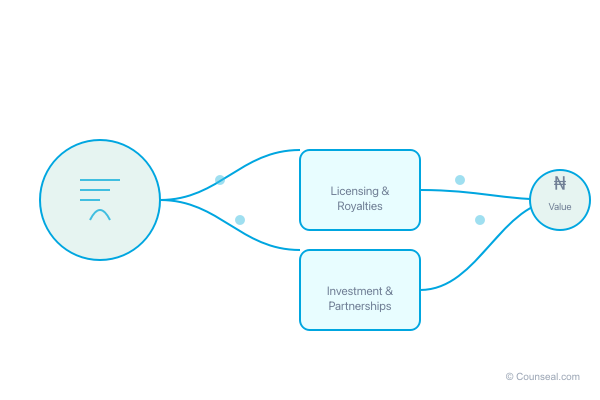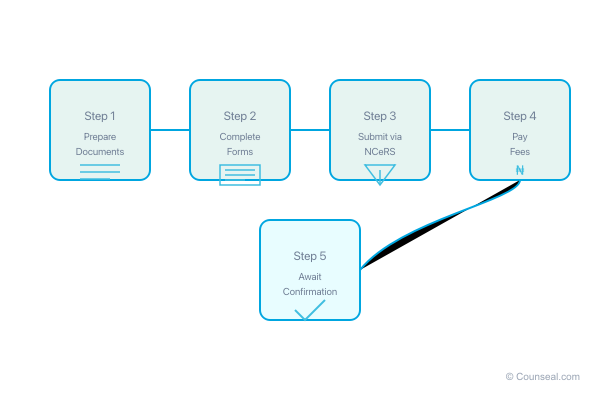Copyrighting Your Creative Works in Nigeria: A Comprehensive Guide

by Counseal Team
Updated February 14, 2025

Imagine spending months perfecting your craft—whether it’s a compelling story, a catchy melody, or a stunning piece of digital art—only to discover someone else claiming it as their own. In Nigeria’s vibrant creative landscape, protecting your intellectual property isn’t just important—it’s essential for your success. This guide will walk you through everything you need to know about securing your creative works through copyright protection.
Imagine spending months perfecting your craft—whether it’s a compelling story, a catchy melody, or a stunning piece of digital art—only to discover someone else claiming it as their own. In Nigeria’s vibrant creative landscape, protecting your intellectual property isn’t just important—it’s essential for your success. This guide will walk you through everything you need to know about securing your creative works through copyright protection.
Understanding Copyright in Nigeria
Copyright serves as the legal foundation that grants creators exclusive rights to their original works. In Nigeria, this protection extends to a broad spectrum of creative outputs:
- Literary works (books, articles, scripts)
- Musical compositions and recordings
- Artistic creations (paintings, sculptures, photographs)
- Cinematographic films
- Sound recordings and broadcasts
- Computer programs and software

The Legal Framework: Copyright Act of 2022
The Copyright Act of 2022 modernised Nigeria’s intellectual property landscape, bringing it in line with global standards and addressing digital-age challenges. Key provisions include:
- Extended copyright duration (creator’s lifetime plus 70 years)
- Enhanced moral rights protection
- Robust technological protection measures
- Improved digital rights management
The Value of Copyright Protection
Economic Benefits for Creators
Copyright protection transforms your creative work into a valuable asset by:
- Establishing exclusive rights to reproduce and distribute your work
- Creating revenue streams through licensing and royalties
- Building long-term value for your intellectual property
- Attracting investment and partnership opportunities

Impact on Nigeria’s Creative Economy
The creative industry contributes significantly to Nigeria’s GDP, with sectors like Nollywood leading the charge. Strong copyright protection:
- Encourages innovation and creative risk-taking
- Attracts foreign investment
- Creates employment opportunities
- Promotes cultural exports
Securing Your Copyright
Registration Process with the Nigerian Copyright Commission
To register your work:
- Prepare required documentation
- Complete the application forms
- Submit through the Nigerian Copyright e-Registration System (NCeRS)
- Pay the prescribed fees
- Await confirmation

Understanding Fair Use and Fair Dealing
The Nigerian copyright system recognises fair dealing for:
- Research and private study
- Criticism and review
- News reporting
- Educational purposes
Protecting Your Rights
Identifying and Addressing Infringement
Monitor your work through:
- Regular online searches
- Industry network monitoring
- Professional tracking services
- Social media surveillance
Legal Remedies
When infringement occurs:
- Document the violation
- Send a cease and desist notice
- Consider alternative dispute resolution
- Pursue legal action if necessary
Visit counseal.com/start to protect your creative works today




